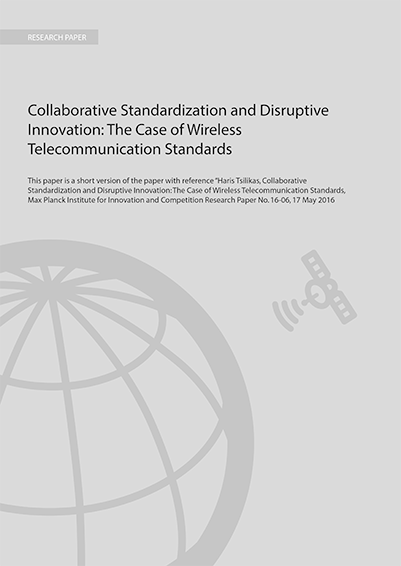Abstract:
Collaborative standardization, an efficient and inclusive form of organised inno- vation under the auspices of standard setting organisations (SSOs), has demonstrated signifi- cant technological achievements in the field of wireless telecommunications. At the core of collaborative standardization is a working balance of interests and incentives of all stake- holders involved, i.e. contributors of technology and users of standards, epitomised by li- censing on FRAND terms. Standardization contributes to significant gains in consumer wel- fare, in the form of lower prices, more innovation and more consumer choice and conven- ience. At the same time standardization fosters competitive markets, upstream and down- stream. However, its character as a process of disruptive innovation is widely disregarded; its contribution to the process of creative destruction and its spill-overs to remote sectors of the economy are ignored. Competition policy and enforcement could play a meaningful and beneficial role only insofar as it is firmly based on a realistic view of standardization, its economic significance and its impact to innovation and growth.







